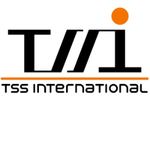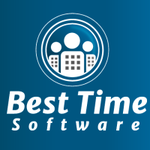What Is Timeshare System?
A timeshare system is a type of vacation ownership in which individuals or families purchase the right to use a certain property, usually a resort or condominium, for a set amount of time each year. This system is founded on the concept of shared ownership, in which numerous owners have the right to utilize the property at various times of the year.
In a timeshare system, customers often have the option of purchasing a specific unit for a set number of weeks or a points-based system that allows them to apply their points towards numerous lodgings and destinations within the timeshare network. This allows purchasers to choose when and where they wish to vacation within the timeshare network.
One of the primary advantages of using a timeshare system is having a constant and reliable vacation option year after year. Buyers who own a specified time slot or points can properly plan and budget for their holiday without the stress and expense of constantly searching for rooms. Furthermore, timeshare ownership frequently includes a variety of amenities such as on-site restaurants, pools, and activities, resulting in a resort-style vacation experience.
However, it is crucial to realize that timeshare ownership includes maintenance and annual costs, which might vary depending on location and management organization. To minimize surprise expenditures, purchasers should carefully investigate and understand these fees before making a purchase. In terms of resale value, timeshares are viewed as a lifestyle transaction rather than a financial investment.
While some resale possibilities are available, buyers should not expect to benefit from their timeshare ownership when selling. Overall, a timeshare system provides a unique and simple option to vacation year after year, with extra benefits of regularity and amenities. As with any big purchase, consumers should educate themselves on the specifics and prices of a timeshare system before making a selection.
What Are The Recent Trends In Timeshare System?
The timeshare sector has undergone a trend shift in recent years as a result of technological advancements and changes in consumer tastes.
Buyers of timeshare systems should be aware of the following significant trends:
1. Increased Use Of Cloud-Based Technologies: As remote work and virtual communication become more common, businesses are shifting to cloud-based technologies for timeshare operations. Users benefit from increased flexibility and accessibility because information and data may be accessed from any location with an internet connection.
2. Integration With Mobile Apps: Mobile apps have become an indispensable tool for modern customers, and the timeshare sector is no exception. We're witnessing an increase in mobile apps that allow customers to book reservations, manage their accounts, and even make payments right from their phones.
3. Personalization And Customization: Today's consumers need a personalized experience, and the timeshare sector is paying attention. Many timeshare systems now include individualized vacation planning choices based on the individual's interests and demands.
4. Application Of Artificial Intelligence: Another rising trend in timeshare systems is the application of artificial intelligence (AI). AI can assist with jobs like as estimating occupancy rates, evaluating consumer data, and enhancing customer service.
5. Transition To Points-Based Systems: Timeshare firms are shifting away from the traditional fixed-week model and toward a points-based system. This gives consumers more flexibility in how and when they utilize their timeshare, rather than being limited to a set week each year.
6. Adopting Digital Marketing: In today's digital world, effective marketing is critical to every firm. Timeshare companies are beginning to use digital marketing tactics, such as social media and customized advertising, to reach a larger audience and attract potential buyers.
Benefits Of Using Timeshare System
Timeshare systems have transformed the tourism business by offering individuals an easy and cost-effective option to own a piece of their favorite vacation spots. But what precisely is a timeshare system, and what are the advantages of investing in it?
Let's explore, we'll look at the benefits of using a timeshare system and how they can improve your vacation experience.
1. Enjoy A Luxurious Vacation Experience: A timeshare system allows you to stay in high-end resorts and homes that are generally out of reach for many individuals. With amenities like swimming pools, spas, and fitness centers, you may have a wonderful holiday without breaking the bank.
2. Hassle-Free Ownership: Unlike traditional vacation homes or rental properties, buying a timeshare eliminates the duties and problems associated with property maintenance. You can just enjoy your holiday while leaving the rest to the management business.
3. Flexible Vacation Options: A timeshare system does not limit you to a single destination or time of year. Many timeshare businesses provide a selection of properties in various destinations, providing you the freedom to travel when and when you desire.
4. Expenditure-Effective: While investing in a timeshare may appear to be a hefty initial expenditure, it can actually save you money in the long run. Because you just pay for the time you spend on the property, it can be less expensive than other vacation options.
5. Homelike Accommodations: Timeshare apartments are often larger and have more facilities than hotel rooms, creating a home-away-from-home atmosphere. With fully equipped kitchens and various bedrooms, timeshares are ideal for families or large groups traveling together.
6. Exchange Programs: Many timeshare firms provide exchange programs, which allow you to trade your timeshare week for another place or time of year. This provides you the freedom to discover different areas and keeps your holiday from becoming routine.
7. Lock In Your Vacation Costs: A timeshare system requires a predetermined annual maintenance charge. This locks in your holiday spending, allowing you to budget for your excursions without worrying about fluctuating hotel prices.
8. Potential Investment: Owning a timeshare might be a good investment because the property's value may rise over time. If you are unable to use your timeshare week, you can rent it out and earn extra money.
Important Factors To Consider While Purchasing Timeshare System?
Purchasing a timeshare system can be a wise investment, but it's critical to know what elements to consider before making a decision.
Here are some crucial items to consider when acquiring a timeshare system:
1. Budget: Before beginning your search for a timeshare system, establish your budget. This will help you reduce your alternatives and avoid overspending.
2. Location: The timeshare's location has a significant impact on both your enjoyment and its prospective resale value. Consider considerations such as closeness to attractions, transportation alternatives, and local amenities.
3. Ownership Structure: Timeshares can be deeded, which means you own a specific unit, or right-to-use, which means you can use the property for a specified number of years. Familiarize yourself with various ownership arrangements and select the one that best suits your demands.
4. Resort Amenities: Consider whatever amenities you want in a timeshare, such as a pool, gym, or on-site restaurant. Ensure that the resort has these amenities and that they are well-maintained.
5. Maintenance Payments: Timeshare owners must pay annual maintenance fees to cover the expense of upkeep and repairs. Ask about the fees ahead of time and budget accordingly.
6. Exchange Options: If you want to be able to vacation in multiple destinations, consider acquiring a timeshare through an exchange program. This permits you to exchange your timeshare for a similar one in a different area.
7. Resale Potential: Although it is not recommended to approach a timeshare as a financial investment, it is vital to examine the resale value. Look at the resort's resale history as well as the current resale market for similar timeshares.
8. Legal Considerations: Timeshares are subject to a variety of rules and regulations, so do your study and understand your rights as an owner.
9. Management Quality: The timeshare management organization will have a significant impact on your ownership experience. Look into their reputation and request referrals from current owners.
What Are The Key Features To Look For In Timeshare System?
When shopping for a Timeshare System, it is critical to examine many crucial elements to ensure that you make an informed and useful decision. These qualities can help you decide which Timeshare System is best suited to your individual needs and expectations.
Here are the essential features to consider while searching for a timeshare system:
1. Online Booking And Reservation Management: One of the most important aspects to look for in a Timeshare System is the capacity to manage online bookings and reservations. This feature not only makes booking easier for your consumers, but it also simplifies the process for you as a timeshare owner or manager. Look for a system that has a user-friendly online booking interface and allows you to manage reservations, cancellations, and availability.
2. Real-Time Availability And Multi-Channel Distribution: Another important factor to consider is real-time availability and multi-channel distribution. This function ensures that your timeshare units are always up to date and accurately shown across all channels, including your website, online travel agents, and third-party booking sites. This will allow you to increase your occupancy rate and attract a larger number of potential customers.
3. Automated Maintenance And Housekeeping: Choosing a Timeshare System with automated maintenance and housekeeping features will greatly improve your property management. This function allows you to easily manage maintenance duties, schedule housekeeping services, and produce work orders. It can also help you keep your timeshare properties in good condition and clean, ensuring that your guests have a comfortable stay.
4. Revenue Management And Reporting: To be successful in timeshare ownership, you must have a system in place to measure and analyze your business performance. Look for a Timeshare System that has revenue management and reporting tools to assist you track your occupancy rates, average daily rates, and revenue. This information can help you make effective pricing decisions and increase your profitability.
5. Timeshare Exchange And Transfer: If your timeshare property is linked with an exchange firm, you must select a system that is compatible with these networks. This feature will allow your customers to trade their timeshare apartments with other associated properties, giving them additional freedom and options for their holiday. Furthermore, a system with transfer capabilities can facilitate ownership transfers between owners or within a family.
Why Do Businesses Need Timeshare System?
Timeshare systems are becoming an indispensable resource for enterprises of all sizes and industries. These software solutions have a number of advantages that can help businesses streamline operations, increase efficiency, and boost revenues.
Let's explore, we'll go over the main reasons why organizations need a timeshare system and what features to look for when making a purchase decision.
1. Effective Resource Management: One of the primary reasons firms want a timeshare system is for effective resource management. This program enables firms to better manage their employees' time and schedules. Managers can use capabilities such as real-time tracking to monitor staff shifts, vacation requests, and availability, ensuring that all resources are used properly.
2. Smooth Communication: Effective communication is critical for every organization, and a timeshare system offers a convenient method to remain in touch with employees. Shift swapping and real-time notifications enable employees to readily convey their availability and schedule changes. This helps to prevent confrontations and keeps everyone on the same page.
3. Cost Savings: Investing in a timeshare system can also help firms save money in the long term. Companies that precisely manage employee hours can minimize overstaffing and lower labor expenditures. Furthermore, efficient resource utilization and enhanced communication can result in increased productivity, which leads to higher earnings.
4. Streamlined Scheduling: Shifts and timetables are no longer managed with pen and paper. Timeshare systems include automated scheduling, which makes it easier for managers to design and change employee schedules. Businesses may construct fair and balanced schedules by factoring in employee availability, shift preferences, and time-off requests, saving time and decreasing errors.
5. Easy Time Tracking: A timeshare system allows firms to properly manage staff hours, removing the need for human timekeeping. This not only saves time but also helps to keep accurate records for payroll and compliance. As a result, employee satisfaction can be increased by assuring fair and timely payment.
How Much Time Is Required To Implement Timeshare System?
The time it takes to establish a timeshare system varies based on numerous aspects, such as the size of the timeshare firm, the complexity of its operations, and the system provider selected. However, it takes an average of 3-6 months to completely deploy a timeshare system. The first stage in the implementation process is to get the required data and information from the timeshare company.
This may provide information about current reservations, owner information, and other critical data. This process may take several weeks, depending on the availability of data and the effectiveness of the company's data management. After gathering the data, the installation team will build up the system based on the company's specific needs and expectations. This process can take anywhere from 4 to 8 weeks, depending on the intricacy and customisation needed.
After the system is set up, the testing and training phase begins. This includes testing the system's functionality, teaching employees how to use it successfully, and making any necessary changes. This phase can last between 2-4 weeks, depending on the size of the organization and the number of employees to be trained. Following the testing and training phases, the final stage is system integration.
This is where the new timeshare system is integrated with the company's existing systems, such as accounting, marketing, and sales. This stage can take up to 2-4 weeks to complete, but it usually takes less. Overall, keep in mind that the time required to deploy a timeshare system may vary based on a variety of circumstances. It is critical to collaborate closely with the system provider and meticulously prepare the installation process to guarantee a seamless and efficient transition.
What Is The Level Of Customization Available In Timeshare System?
When it comes to timeshare systems, personalization is an important thing to consider. The level of customization provided has a significant impact on the efficiency and success of a timeshare company. As a result, before purchasing a timeshare, consumers should have a thorough awareness of the customizing choices accessible in the system. In general, timeshare systems provide a variety of customization choices to satisfy the unique demands of each timeshare company.
This includes customizing the user interface, sales procedures, reporting, and marketing campaigns. Additionally, some systems allow you to tailor functions like housekeeping, reservations, and owner services. One of the primary motivations for installing a timeshare system is to improve operations and efficiency. Customization is very important in this case.
Tailoring the system to the specific needs of a timeshare firm can significantly boost productivity and overall effectiveness. When it comes to user interface modification, a decent timeshare system should let you add or delete fields, change layouts, and produce custom reports. This allows timeshare firms to acquire and track the most relevant data for their business, making it easier to make informed decisions. Another critical factor to consider is the capacity to personalize sales procedures. This offers options for designing sales contracts, payment plans, and pricing systems.
A versatile and robust timeshare system should provide multiple customization options to meet the specific needs of diverse sales processes. Furthermore, customisation can substantially aid marketing efforts in the timeshare sector. A good system should enable the production of personalized email templates, marketing campaigns, and targeted promotional offers. This level of customisation can help timeshare firms better contact their target audience, resulting in a higher return on investment.
Which Industries Can Benefit The Most From Timeshare System?
Timeshare systems have become a popular choice for enterprises in a variety of industries due to their numerous benefits and flexibility. These technologies enable businesses to efficiently manage their resources while also delivering a cost-effective answer for their operational requirements.
Let's explore, we'll look at which industries might gain the most from establishing a timeshare system.
1. Hospitality Industry: Timeshare systems benefit the hospitality industry significantly. With the dynamic and ever-changing demand for vacation properties, timeshare systems offer a simple and efficient way to manage bookings, room availability, and guest information. It also helps to streamline operations and improve customer satisfaction by delivering a consistent experience from check-in to checkout.
2. Healthcare Industry: In the healthcare industry, where coordinating appointments, patient information, and staff schedules can be difficult, timeshare systems are an excellent answer. These systems assist healthcare facilities in optimizing their resources and providing better treatment to patients. Timeshare systems improve healthcare organizations' efficiency by providing features such as online appointment scheduling and real-time updates, resulting in better patient outcomes.
3. Manufacturing Industry: The manufacturing industry must deal with variations in demand and production schedules. Timeshare systems help manufacturers manage their equipment, resources, and production schedules more efficiently. Manufacturers can cut expenses and increase productivity by allowing them to effectively share their resources.
4. Education Industry: Schools, colleges, and universities require effective scheduling and administration of classrooms, labs, and other resources. Timeshare systems can assist these institutions better manage their resources and avoid scheduling disputes. It also allows them to monitor facility usage, which helps them make educated decisions about future investments.
5. Entertainment & Event Industry: Timeshare systems can help events and entertainment venues manage various bookings, schedules, and resources effectively. These technologies allow event organizers to easily plan and schedule events, distribute resources, and guarantee that the process runs well. They can also use real-time data to evaluate event performance and make improvements for future events.
Conclusion
In conclusion, choosing the best timeshare system for your needs necessitates thorough research and examination of the numerous features and options accessible. By following the steps provided in this buyer's guide, you can make an informed selection that will result in a great and rewarding ownership experience. First, thoroughly examine the developers and management businesses involved in the timeshare system.
This can help you understand their reputation, industry experience, and the quality of their homes. Next, carefully consider the various ownership options, such as fixed or floating weeks, points-based, or fractional ownership. Consider your vacation preferences and frequency, as well as your budget, to see which choice is ideal for you. When it comes to actual properties, pay great attention to the location, size, and facilities available.
This will have a significant impact on your whole holiday experience and the prospective resale value of your ownership. In addition, carefully consider the maintenance fees and any other expenditures related with ownership. This includes currency rates, reservation fees, and taxes. Budgeting for these expenses is critical to avoiding unforeseen financial burdens.
Finally, take advantage of any opportunities to attend seminars or tours of the timeshare system, since they will provide you with a firsthand look at what to expect as an owner and allow you to ask any remaining questions. While choosing a timeshare system is not a simple decision, with the correct research and considerations, you may select a system that fits your lifestyle and provides a profitable and fun investment for years to come. We hope this buyer's guide helped you find the ideal timeshare system.
















